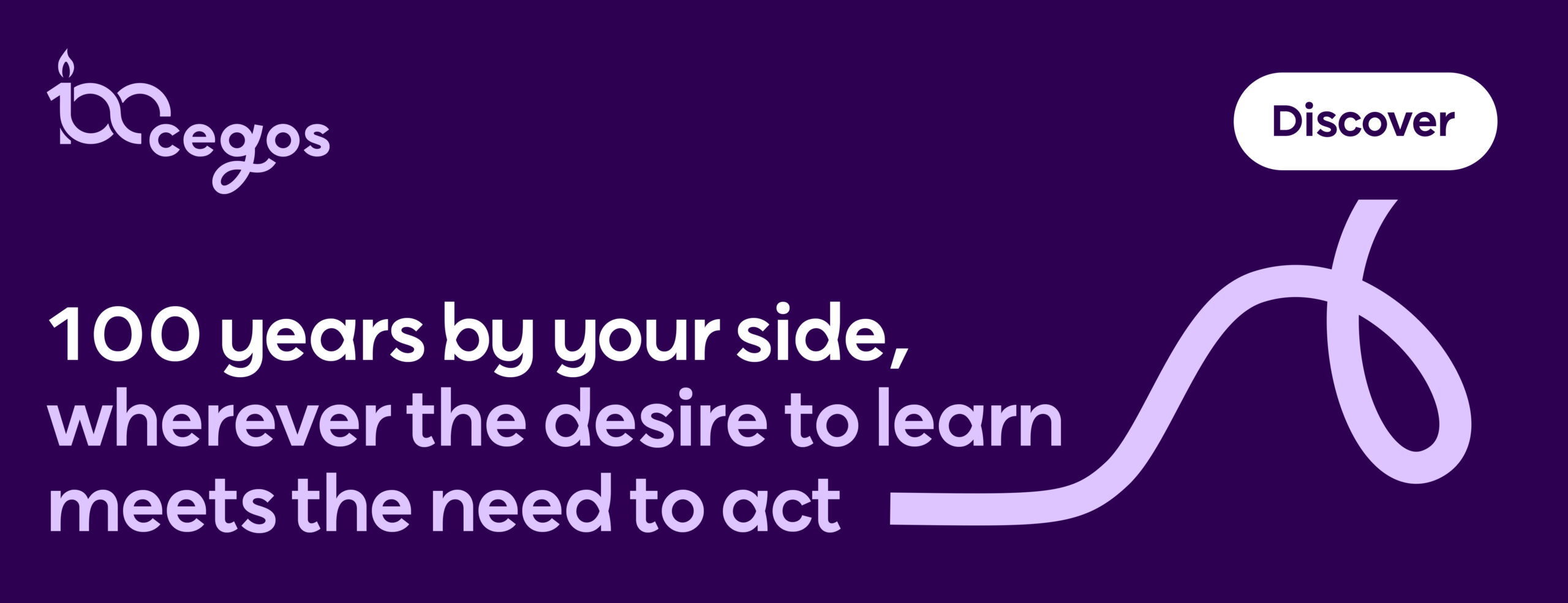
Mag summary
- What do we mean by inclusion in the workplace?
- What is the role of the manager in the inclusion process?
- What is the point of inclusive management?
- How do you recognise a manager who is not very inclusive or not at all?
- Inclusive management: when should you take action?
- What skills do you need to become an inclusive manager?
- Can you be an inclusive manager when not compelled by the company?
- Cegos Team
Is your management inclusive? Given the global figures for workplace inclusion, the answer may not be encouraging. According to Cegos 2022 study, 82% of employees worldwide claim to have witnessed discrimination, and only 34% of managers feel sufficiently supported in dealing with it. Let's ask ourselves what an inclusive manager really is and how to become one.

What do we mean by inclusion in the workplace?
Since the health crisis, workplace inclusion has become an important topic across organisations, and is expected of employees or even job candidates. It means leading a team with different profiles and, furthermore, instilling a diverse dynamic among a company’s employees.
Inclusive management is based on the premise that differences are an asset for the company. It fights against discrimination in the spirit of the law. But it also promotes collective intelligence to improve the quality of life at work, the agility of the organisation and ultimately its performance.
Inclusive management is also a real challenge, the extent of which is shown in the Cegos Barometer report – published in June 2022 – dedicated to diversity and inclusion in organisations. The survey was conducted across 7 countries in Europe (France, Germany, Italy, Spain, Great Britain, Portugal) and Latin America (Brazil).
Among the findings of the study:
- 63% of employees claim to have experienced of at least one form of discrimination.
- Among the forms of discrimination most frequently encountered, people mention age (25%), health (19%), gender (18%) and physical appearance (16%).
- Only 33% of employees highlight the commitment of the management team to promote values of inclusion at the highest level of the company.
What is the role of the manager in the inclusion process?
Faced with such a challenge, the role of the manager is manifold. Firstly, a manager is often involved in recruitment, and sometimes proposes or supports staff promotions. In direct contact with their teams, they are a key player. Often, we recruit or promote profiles that are similar to ourselves. A manager should therefore ask themselves whether their team lacks diversity.
39% of employees describe their direct manager as a strong ally in dealing with diversity issues. But their role cannot be limited to human resources.
Managers play an essential role in leading their team on a daily basis. In this respect, the inclusive manager can be compared to a conductor who knows how to integrate various instruments to give a harmonious meaning to the whole. Inclusive managers set the tone and instil policies that benefit everyone.
What is the point of inclusive management?
There are many reasons to promote inclusive management. According to 65% of employees surveyed, diversity contributes to the overall performance of the organisation. Various studies show the average impact on overall turnover is estimated at around 15%. The benefits of inclusion are not necessarily quantifiable, but they are very real and have an impact on the quality of life at work.
In terms of human resources, inclusive management contributes to the retention of talent, but also to the overall attractiveness of the organisation and its employer brand. In France, 84% of employees say that taking inclusion issues into account would be an ‘important’ criterion when choosing a new employer. Moreover, inclusion benefits managers themselves. They also remain an employee, often proud to lead their teams according to their values or emerging societal expectations.
How do you recognise a manager who is not very inclusive or not at all?
Progress still needs to be made, and many of us have no doubt witnessed situations such as:
- A manager who makes or allows sexist, homophobic, fat-shaming, age-related jokes.
- A manager who organises a meeting that risks running over after 6pm
- During an assignment with a client, sending a delegation where all employees are from a similar demographic (age, sex, appearance, etc.)
- During a presentation, a manager who dominates the discussion.
- A manager who is hostile to a multi-layered organisation
63% of employees say they have already been victims of at least one form of discrimination. These acts are said to be perpetrated first by colleagues and then by direct managers.
On the other hand, deliberately inclusive gestures leave a lasting and positive impression on people's minds, whether they are employees or clients. Imagine, for example, a high value-added delegation mission where all the employees clearly do not come from the same mould. Instead, they are made up of people of different genders, ages, backgrounds, or relationship to disability. Imagine a contact person who involves everyone in the discussion. Inclusiveness surprises and is something to be remembered.
Inclusive management: when should you take action?
In order to become an inclusive manager, you need to adopt a few good practices. I often recommend training on cognitive bias and stereotypes. No one is immune to prejudice, so it is healthy to get out of your comfort zone and challenge yourself. Ideally, however, one should not act alone and be supported by one's line management. To go further, we could take part in training courses that cover awareness of intergenerational management, parity and diversity.
I also invite you to review your interpersonal skills. For this, soft skills training, such as ‘process communications’ to get to know others better, or ‘non-violent communications’ to communicate more effectively, are relevant. Both programs allow us to improve our understand of others as well as identify and overcome resistance. After all, isn't inclusive management about taking every individual into account?
What skills do you need to become an inclusive manager?
It remains to be seen whether all managers can become inclusive. On paper, anyone can make progress on this issue, provided they have the necessary motivation. Inclusion does not happen without effort. It requires a lot of humility and the ability to question oneself. You must be ready to learn. And then, on the ground, you need to commit and be vigilant.
The skills required to be an inclusive manager are:
- Being humble, even asking for help
- Knowing how to be aware and listen to what is going on around you
- Having the courage to call out any prejudiced comments or behaviour
- Supporting your teams in coaching mode
- Encouraging collective intelligence
- Organising awareness-raising actions or campaigns
Can you be an inclusive manager when not compelled by the company?
It is preferable to be supported. However, according to the Cegos study, only 34% of managers feel their organisation helps them to manage sensitive situations related to diversity and inclusion. There is therefore real room for improvement.
However, even without encouragement, you must begin somewhere. Ask yourself searching questions and manage according to your personal convictions. Hopefully, being inspired by examples, you can instil good practices, upwards and downwards.
Real change will undoubtedly take a long time, but not without benefits. In the long run, will organisations have the choice? In the context of the battle for talent, diversity is an issue that is becoming less negotiable. When new employees arrive – especially in the 18-30 age group – they have strong expectations. The company must reflect today's society. If it doesn't, it puts itself out of step with what people are experiencing and in danger of failing to attract talent and retain it.
This article was written with journalist Céline Chaudeau.










